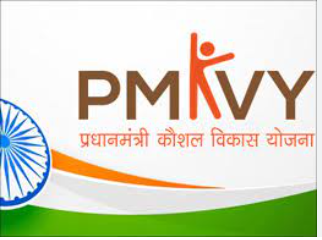Pradhan Mantri Kaushal Vikas Yojana
Pradhan Mantri Kaushal Vikas Yojana (PMKVY) is a flagship scheme of the Government of India, launched in 2015 under the Ministry of Skill Development and Entrepreneurship (MSDE). The primary objective of the scheme is to provide industry-relevant skill training to Indian youth, enabling them to secure a better livelihood and contribute to the country’s economic growth.
Background and Objectives
India, with its vast population, has a significant demographic advantage. However, to harness this potential, it is crucial to equip the youth with the necessary skills and knowledge to meet the demands of various industries. Recognizing this need, the Government of India launched PMKVY to bridge the skill gap and create a workforce that is industry-ready and globally competitive.
Key objectives of PMKVY include:
- Providing industry-relevant skill training to youth
- Enhancing the employability of the workforce
- Encouraging entrepreneurship
- Aligning skill training with international standards
- Fostering industry partnerships for skill development
Components and Implementation
PMKVY is implemented through three key components:
- Short Term Training (STT): STT provides skill training to unemployed youth and school/college dropouts in various sectors, with courses ranging from 150 to 300 hours. Training is provided through accredited training centers, and successful candidates receive industry-recognized certificates.
- Recognition of Prior Learning (RPL): RPL aims to assess and certify the skills acquired by individuals through informal means, such as work experience or traditional learning. This component helps in aligning the existing workforce with the National Skills Qualification Framework (NSQF).
- Special Projects: Special Projects focus on providing skill training in specific sectors or regions with unique skill requirements. These projects are designed in collaboration with industry partners, state governments, or other stakeholders.
The National Skill Development Corporation (NSDC), a public-private partnership entity, is the implementing agency for PMKVY. NSDC works with a network of training partners, sector skill councils, and assessment agencies to ensure the effective delivery of the scheme.
Funding and Incentives
PMKVY is a centrally sponsored scheme, with the majority of the funding provided by the Government of India. The scheme offers various incentives to encourage participation:
- Monetary reward for successful completion of training and certification
- Post-placement support for gainful employment
- Provision for transportation and boarding allowances during training
Achievements and Impact
Since its launch, PMKVY has made significant strides in promoting skill development in India. As of 2021, some notable achievements include:
- Training of over 1.2 crore (12 million) youth across various sectors
- Establishment of more than 11,000 training centers across the country
- Partnership with over 600 industry partners for skill development
- Alignment of skill training with international standards, enhancing global recognition of Indian workforce
The scheme has also had a positive impact on the lives of youth, particularly those from disadvantaged backgrounds, by providing them with the skills and opportunities to secure better employment and improve their socio-economic conditions.
Challenges and Way Forward
Despite its successes, PMKVY has faced challenges, such as:
- Ensuring the quality and consistency of training across all centers
- Bridging the gap between the skills imparted and the evolving industry requirements
- Encouraging greater industry participation in skill development initiatives
- Addressing regional disparities in skill training and employment opportunities
To overcome these challenges, the Government of India has been continuously refining the scheme based on feedback from stakeholders. Efforts are being made to strengthen industry partnerships, improve the quality of training, and leverage technology for better implementation and monitoring of the scheme.


